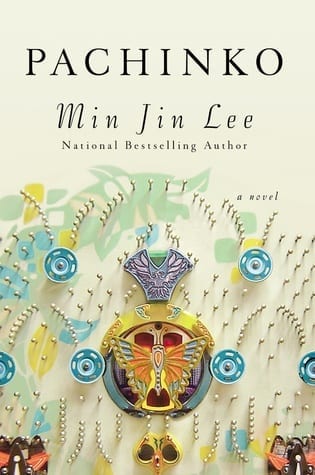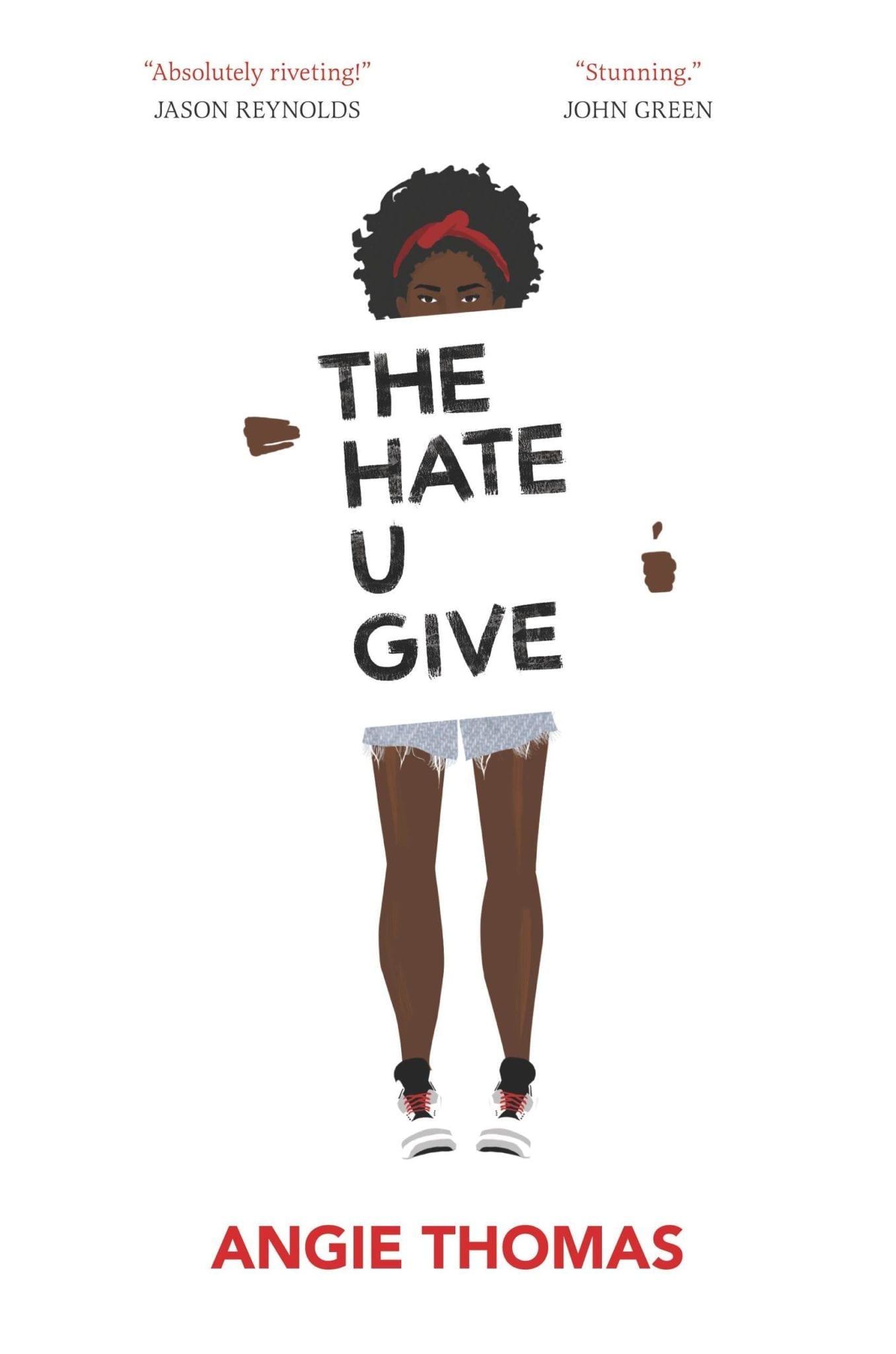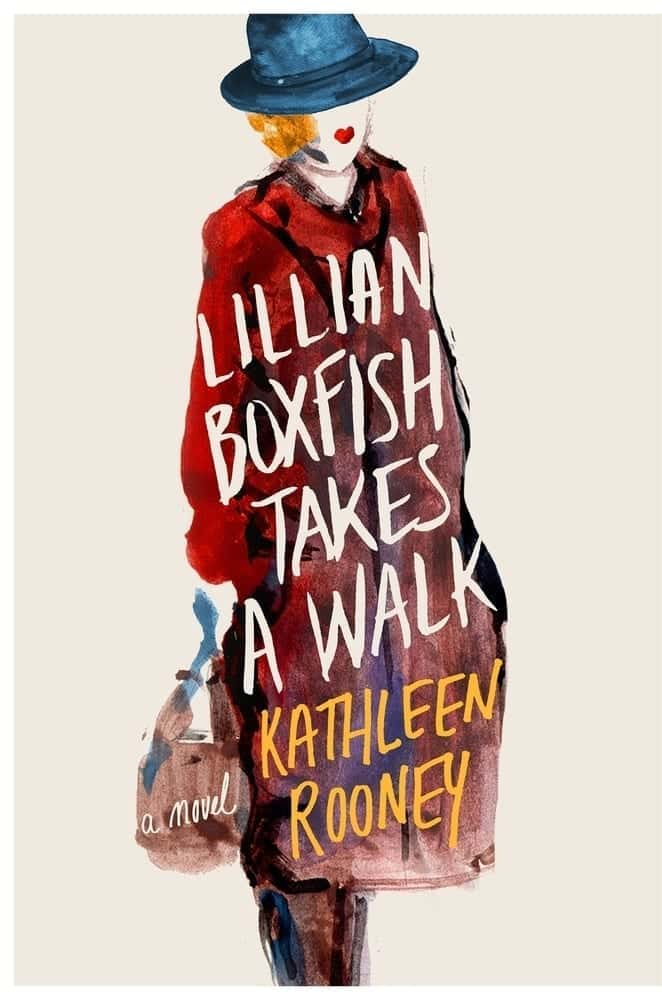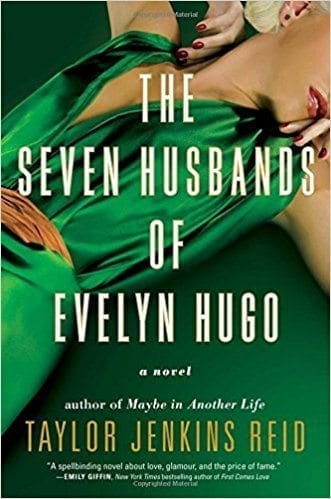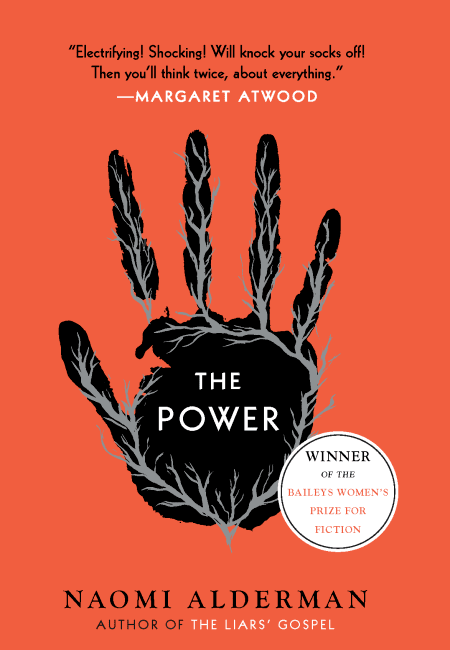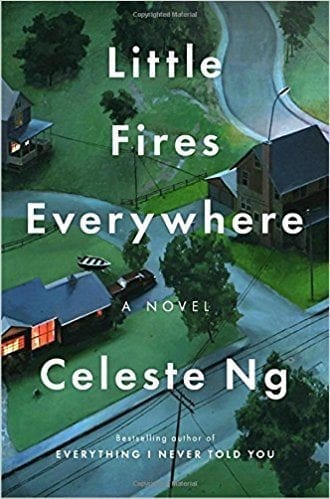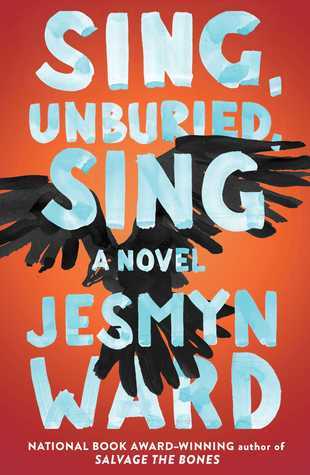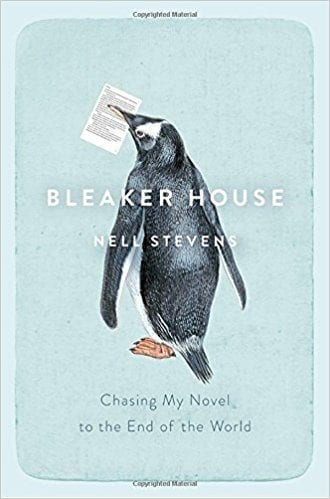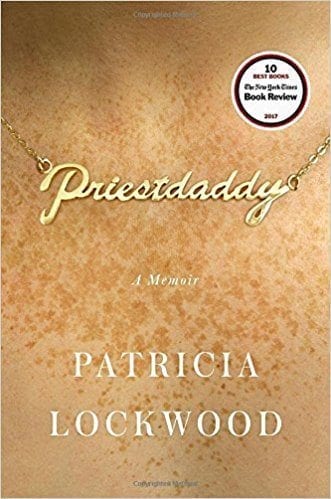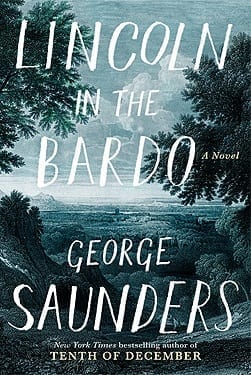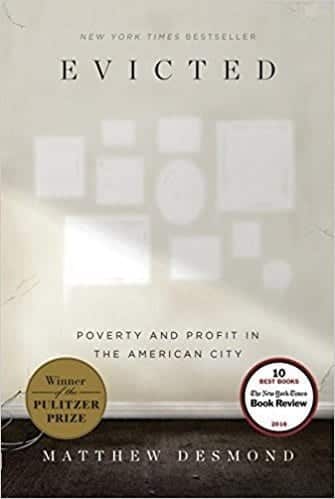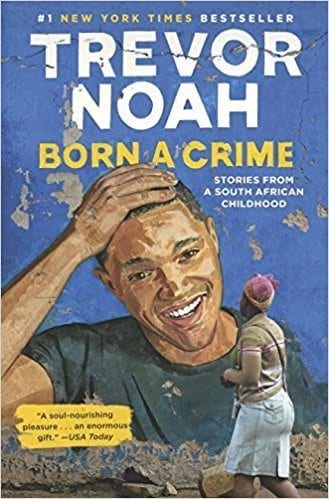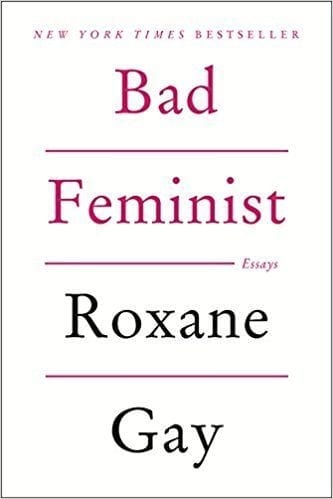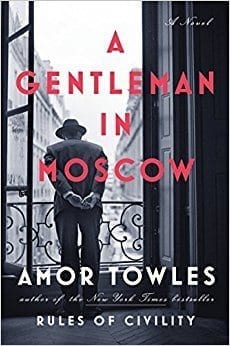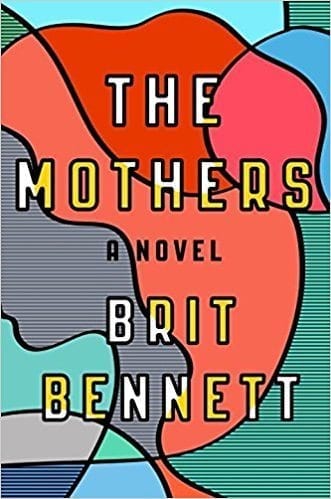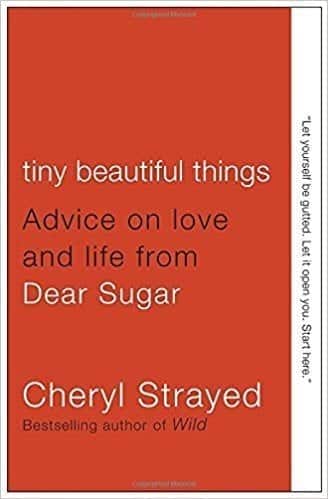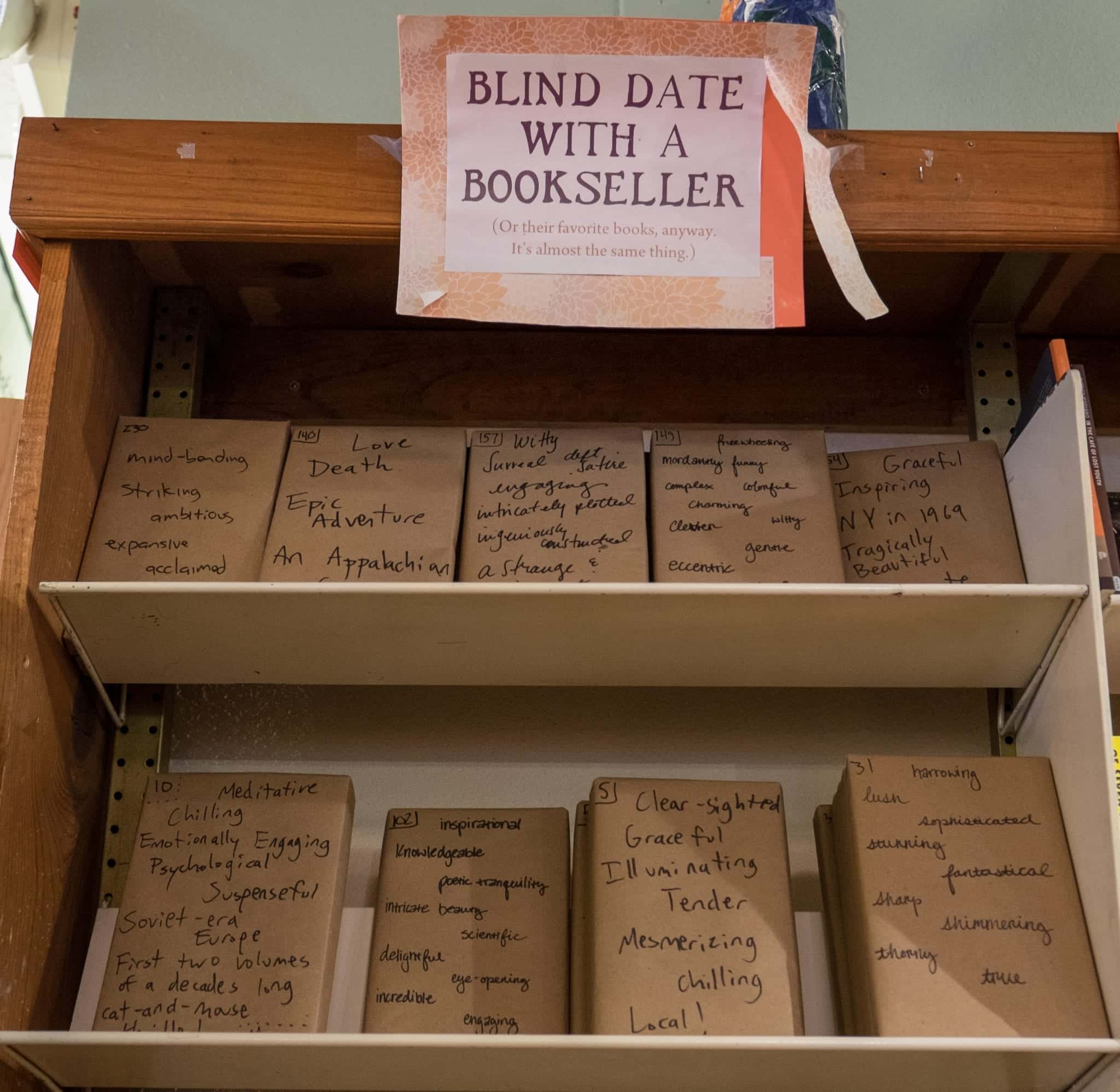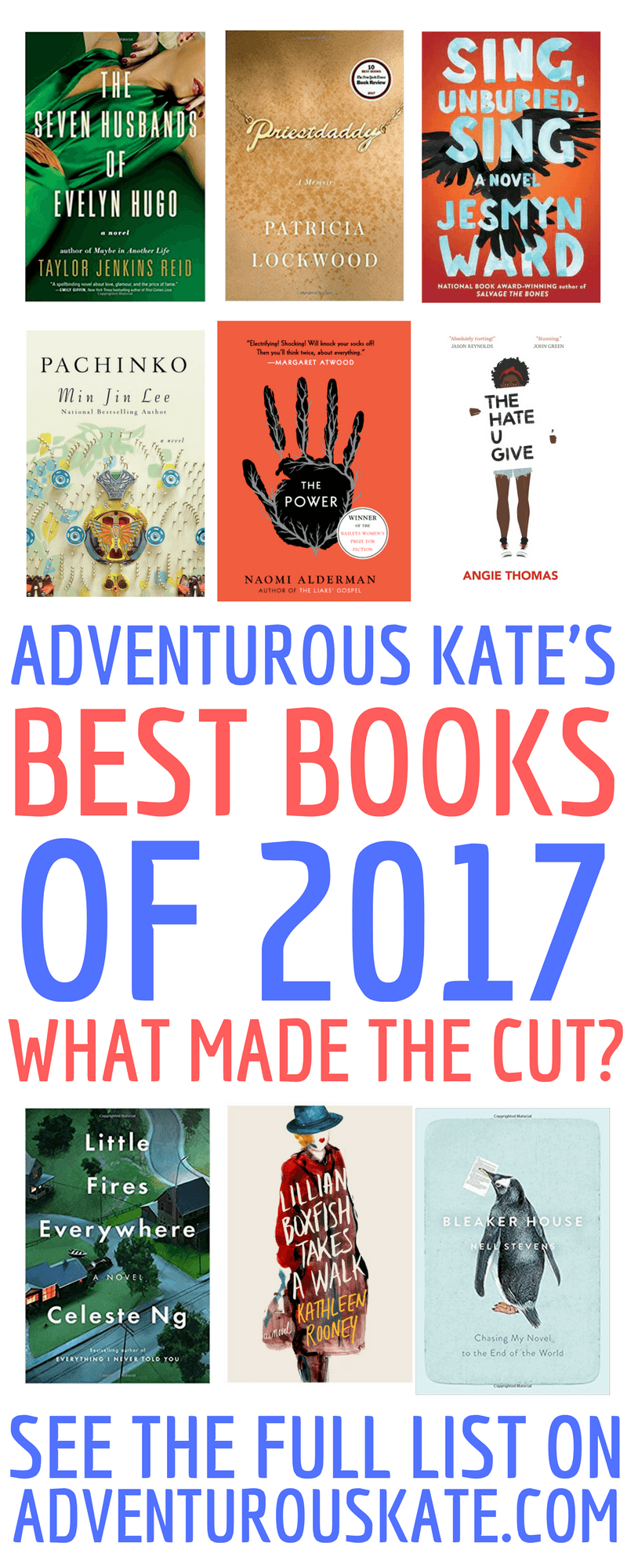Adventurous Kate contains affiliate links. If you make a purchase through these links, I will earn a commission at no extra cost to you. Thanks!
I outdid myself reading in 2017. Not only did I complete the PopSugar 2017 Reading Challenge in September, but I’ve read 70 books as of press time, well beyond the standard book per week!
I also bought my apartment’s first bookshelf at the beginning of the year. At the time I had only three books to put on it (I’ve been doing the Kindle thing for years). Less than a year later, it’s nearly full. Good thing I’m moving to a new apartment with a lot of space for more bookshelves…
This was also my first year enjoying new reads from Book of the Month, a US-based service that allows you to choose a new hardcover book each month for far less than what you’d pay retail. As a result, I read more current books than I ever have before!
The big theme in the books I read this year was the relationship between children and their parents. Joy and love. Abuse and neglect. Death and grief. Wanting to spread your wings and wanting to honor your heritage. This year had all of those topics in abundance.
For 2017, I’ve decided to put my favorite reads of 2017 into two categories: books published in 2017 and books published prior to 2017. It’s important to note that it was SO hard to narrow down 70 books to a top 16 or so, and this list omits several books that I enjoyed wholeheartedly but didn’t make the top tier. Here we go!
My Favorite Book of 2017: Pachinko by Min Jin Lee
This sweeping saga tells the story of several generations of Koreans living in Japan. A young girl named Sunja becomes pregnant by her older married lover; a tuberculosis-stricken minister offers to marry her and bring her to Japan with him. So begins the saga of the Baek family, who, like all Koreans in Japan, were treated as second-class citizens in various ways through the present day. Sunja’s sons and their families try to build better lives for themselves, but they can’t outrun the prejudices that run deep throughout Japan.
“Sunja-ya, a woman’s life is endless work and suffering. There is suffering and then more suffering. It’s better to expect it, you know. You’re becoming a woman now, so you should be told this. For a woman, the man you marry will determine the quality of your life completely. A good man is a decent life, and a bad man is a cursed life—but no matter what, always expect suffering, and just keep working hard. No one will take care of a poor woman—just ourselves.”
What I loved so much about Pachinko is that it introduced me to a world I know nothing about. I had no idea that Koreans were treated so poorly — it so closely mirrors the treatment of African-Americans over history, with the big difference being that it was often impossible for Japanese and Koreans to be differentiated. I loved the themes; I loved how it explored family and duty and the things you can’t change. Beyond that, I loved how cinematic the book was — some of the scenes are etched across my mind, like when Sunja unsteadily began selling kimchee in the market for the first time.
Why is Pachinko at the top of my list? It was so layered and detailed, telling a beautiful and original story in a beautiful and original way, yet universal enough that we can all relate to it. I can’t recommend it more highly.
My Runner-Up Favorite Book of 2017: The Hate U Give by Angie Thomas
Starr is a teenage girl living in two worlds: her home with her family in the inner city, and the elite private school in a wealthy suburb where she is one of few black students. It’s difficult enough that she is constantly weighing different personalities and actions depending on who she’s with, but then the worst happens: she is driving home from a party with her friend Khalil and he is shot to death by a police officer for no reason. Her life is thrown into turmoil as she and the nation try to navigate this senseless killing.
“I’ve seen it happen over and over again: a black person gets killed just for being black, and all hell breaks loose. I’ve Tweeted RIP hashtags, reblogged pictures on Tumblr, and signed every petition out there. I always said that if I saw it happen to somebody, I would have the loudest voice, making sure the world knew what went down.
Now I am that person, and I’m too afraid to speak.”
I have no words for how much I fiercely loved this book. The characters are fantastic and Starr’s family is probably my favorite family I’ve ever read in literature. It’s being turned into a film and I cannot wait to see it. And it’s an incredibly important subject.
But more than that, every American needs to read this book. I fully believe that literature can teach compassion, and this is just the kind of book that can change opinions and lives, particularly those of children growing up in racist environments. I’m trying to put it into as many hands as possible, and it made me so happy when a friend who teaches high school English decided to assign it to her students! Please, read this book and pass it on to everyone you know.
Lillian Boxfish Takes a Walk by Kathleen Rooney (2017)
This delicious novel is a love letter to an amazing woman who climbed to the top of her field and made New York her home. Lillian Boxfish is based on Margaret Fishback, the Macy’s employee who at her heyday in the 1930s was the highest paid female copywriter in America. The book takes place on the last night of 1984, when 85-year-old Lillian goes for a solo walk around her beloved New York at a time when the city was gripped by crime and the AIDS crisis. The book flashes back from 1984 to other parts of her life, chronicling her professional and personal moments.
“We had one of those Friday dates that turned into an entire weekend, and by the end of it, I loved him so much my larynx ached. Vulnerable love, incorrigible love. Love in which he was both the nausea and the sodium bicarbonate.”
This book is a treat if you’re an independent woman, a writer, a walker, a New Yorker, or a lover of words. I identify as all five of those things, so you can see why I liked it so much! But beyond that, I fell in love with the language of this book. I think it’s absolutely remarkable and that’s what really elevated the book to the next level.
The Seven Husbands of Evelyn Hugo by Taylor Jennings Reid (2017)
In the hands of a lesser author, this would have been a forgettable read about a faux movie star’s exploits; in the hands of Taylor Jenkins Reid, this novel is a starling examination of humanity behind the celebrity. In the book, Evelyn Hugo, legendary movie star of the 1960s, tells an unknown magazine writer that she’s chosen her to write her authorized biography after her death; throughout the book, she chronicles the secrets surrounding her seven husbands and answers the question: who was the love of her life?
“People think that intimacy is about sex. But intimacy is about truth. When you realize you can tell someone your truth, when you can show yourself to them, when you stand in front of them bare and their response is ‘you’re safe with me’- that’s intimacy.”
I actually read this book in a single day — I could not put it down. I’m not going to give anything away, but this book goes in a very different direction than what you’d expect, especially for a character with many parallels to Elizabeth Taylor. Each husband was unique and had a specific purpose. I finished the book feeling grateful for the world we live in today.
The Power by Naomi Alderman (2017)
Taking place in the present day, this dystopian novel examines what would happen if gender dynamics were suddenly, abruptly switched. Teenage girls suddenly realize they have the power to send electrical shocks from their fingers and inflict pain. They also have the ability to wake up this ability in adult women. Over the course of a decade, the world changes: boys dress like girls to appear tougher, Americans vote a violent woman for governor because they’re afraid of her male rival’s weakness, and men no longer feel safe walking the streets at night.
“It doesn’t matter that she shouldn’t, that she never would. What matters is that she could, if she wanted. The power to hurt is a kind of wealth.”
This is one of the best dystopian novel concepts I’ve read in a long time. It really makes you think critically about gender dynamics. If women had this power, would we really say things like, “Of course women are naturally more violent than men, they had to protect their babies”? On top of that, it’s an entertaining novel. I especially liked that it focused on several different points of view, similarly to World War Z.
Little Fires Everywhere by Celeste Ng (2017)
This novel tells the story of two families in Shaker Heights, Ohio — a well-to-do family with teenage kids, and a mother and teen daughter to whom they rent an apartment. The mother and daughter have lived a bohemian, transitory lifestyle and are now looking to settle down. Almost everyone in the other family becomes fascinated with them. Then when a white couple tries to adopt a Chinese-American baby under controversial circumstances, the town and families go to war with each other.
“Sometimes you need to scorch everything to the ground, and start over. After the burning the soil is richer, and new things can grow. People are like that, too. They start over. They find a way.”
This is the second book of Ng’s that I’ve read — the first was Everything I Never Told You — and while I liked her first novel, I adored this one. The character dynamics were so interesting (though I did think one relationship was unrealistic) and I loved the unraveling of the mystery surrounding the mother and daughter. I also have to say that this book was biting in its portrayal of a white woman who thinks she’s doing everything she can to fight racism and inequality, then doesn’t stand up when it actually counts.
Sing, Unburied, Sing by Jesmyn Ward (2017)
Jojo is a kid growing up poor in Mississippi with his beloved grandfather, dying grandmother, baby sister, and drug-addicted mother. His mother, who is black, takes him on a road trip to get his father, who is white, out of prison upstate. While at the prison, where his grandfather was once incarcerated, Jojo meets the ghost of an imprisoned child who follows him home.
“Growing up out here in the country taught me things. Taught me that after the first fat flush of life, time eats away at things: it rusts machinery, it matures animals to become hairless and featherless, and it withers plants…since Mama got sick, I learned pain can do that too. Can eat a person until there’s nothing but bone and skin and a thin layer of blood left. How it can eat your insides and swell you in wrong ways.”
Sing, Unburied, Sing won the National Book Award for fiction this year, and even though I was rooting for Pachinko in the competition, Jesmyn Ward definitely deserved it (her second National Book Award!). This book blends themes of family, race, poverty, and addiction with mysticism and magic, creating a novel unlike anything I’ve ever read. I love what she said at the awards ceremony: “I wanted to write about the experiences of the poor and the black and the rural people of the South so that the culture that marginalized us for so long would see that our stories were as universal, our lives as fraught and lovely and important as theirs.”
Bleaker House: Chasing My Novel to the End of the World by Nell Stevens (2017)
Nell Stevens got her MFA at Boston University, which gives their students a three-month writing fellowship anywhere in the world. A lot of students go to Europe or Southeast Asia, but Stevens was determined to write in a distraction-free environment. So where did she choose to go? The Falkland Islands. In winter. In fact, she was alone on her very own island. She chose to go there because she thought she’d be able to write in that environment; however, things did not go to plan. Instead of a novel, she wrote a memoir about how she failed at writing a novel.
“If I can teach myself the art of loneliness, then perhaps the art of writing will come more easily to me.”
I love reading memoirs about work, whether that work is being a chef, farmer, personal stylist, or something else altogether. And this book doesn’t shy away from the grind of trying to crank out a novel, particularly when living on only 1100 calories per day. I thought it was self-deprecating in all the right ways; in fact, this should be required reading for anyone about to undertake a major writing project.
Priestdaddy by Patricia Lockwood (2017)
To say Patricia Lockwood had an unusual upbringing would be a massive understatement: her father was a Catholic priest, a priest who loved jamming out on the guitar, being naked, and protesting abortion. He was a character and a half, and her other family members were nearly as crazy as him. The memoir takes place in the present day, when Lockwood and her husband moved in with her parents for several months to save money, but it’s sprinkled with anecdotes from her childhood.
“When we came home later, my father was wearing his most transparent pair of boxer shorts, to show us he was angry, and drinking Baileys Irish Cream liqueur out of a miniature crystal glass, to show us his heart was broken.”
I actually read several books of poetry and novels by poets this year, and what I love about poets like Lockwood is that they infuse such beauty and care into their prose as well. As a result, Priestdaddy is dense and requires a long time to read properly; I promise you it’s worth it. I guarantee another family like this does not exist in the country, and even if they did, they wouldn’t have a writer like Lockwood writing about them.
Lincoln in the Bardo by George Saunders (2017)
The year is 1862 and America is weary, a year into the Civil War. Abraham Lincoln is shouldering the burden of the nation and mourning the death of his young son Willie. Over the course of one night, Lincoln returns to the family tomb several times to hold his son’s body. The tomb, however, is filled with spirits who have refused to cross on to the next world. The book is written like a play — the spirits argue, bicker, and spout gibberish, but all they know is that children are not supposed to stay there for long and the boy’s soul could end up trapped forever.
“What I mean to say is, we had been considerable. Had been loved. Not lonely, not lost, not freakish, but wise, each in his or her own way. Our departures caused pain. Those who had loved us sat upon their beds, heads in hand; lowered their faces to tabletops, making animal noises. We had been loved, I say, and remembering us, even many years later, people would smile, briefly gladdened at the memory.”
This is perhaps the most original concept of a book I’ve ever read. Who would ever dream of combining the tragedy of Lincoln’s family with the Tibetan concept of the holding place for souls in waiting? And who would fill it with crude and hilarious characters? This was a book that I had been looking forward to reading ever since I first heard of it, and to be honest, it took me a while to really get into it. But I will say this — without giving away any spoilers, this book has a great ending. It’s beautiful, it’s life-affirming, and it was the ending more than anything else that put the book on my best of 2017 list.
And now, my favorite books published prior to 2017:
Evicted: Poverty and Profit in the American City by Matthew Desmond (2016)
This is another book that every American needs to read. I think it’s the most important book about poverty in America that I’ve ever read. Desmond’s book is set in Milwaukee, the most racially segregated major city in America. It tells the stories of two landlords, one black and one white, and their low-income tenants. Through their stories, supplemented by factual information about poverty in America, it paints a portrait of how eviction and lack of affordable housing perpetuate poverty today.
“But equal treatment in an unequal society could still foster inequality. Because black men were disproportionately incarcerated and black women disproportionately evicted, uniformly denying housing to applicants with recent criminal or eviction records still had an incommensurate impact on African Americans.”
I learned so much from this book, and it’s a shame that our country is this way. For example, rents have been steadily rising over time, but benefits and the minimum wage have not, which has made it even more difficult for low-income Americans to find affordable housing. This often subjects them to unsafe living conditions. Something else I learned is that calling 911 can often be cause for eviction, so many victims of domestic violence often choose between their housing and their safety. It’s a horrible cycle and there’s so much that needs to be done in this country to remedy this terrible reality.
Born a Crime: Stories of a South African Childhood by Trevor Noah (2016)
Trevor Noah, host of The Daily Show, has arguably one of the most interesting backgrounds you could dream up. He was born in South Africa to a black mother and a white father during Apartheid, which made his very existence illegal. Trevor grew up in the shadows, always having to hide from authorities. But beyond that, his life was an incredible search for identity, touching on themes of growth through creativity, entrepreneurship, and protecting his mother in the face of domestic violence.
“The hood made me realise that crime succeeds because crime does the one thing the government doesn’t do: crime cares. Crime is grassroots. Crime looks for the young kids who need support and a lifting hand. Crime offers internship programmes and part-time jobs and opportunities for advancement. Crime gets involved in the community. Crime doesn’t discriminate.”
It’s an utterly fascinating read and it proves that Trevor Noah is no lightweight. If you’re one of the Daily Show fans who wishes Jon Stewart were still around, I think you should pick up this book and gain a new respect for Trevor Noah. And while there are a lot of dark times in the book, there’s also a lot of humor as well.
I listened to this book as an audiobook and I highly recommend you do the same. Trevor is a polyglot and he speaks so many languages, does so many accents, and imitates so many characters that the audiobook is a joy to hear.
Bad Feminist by Roxane Gay (2014)
It might seem a bit strange to pick Bad Feminist over Gay’s memoir Hunger, which was released this year to great acclaim. I did read and enjoy Hunger, but I don’t think it belonged on my list of favorite reads. Bad Feminist, though? I feel like this book was written for me. Roxane Gay is easily my favorite new author of 2017, and I adore her voice as she covered so many topics: from the problematic films of The Help and Django Unchained to the world of competitive Scrabble to her own failures at being a “good feminist.”
“Don’t flirt, have sex, or engage in emotional affairs with your friends’ significant others. This shouldn’t need to be said, but it needs to be said. That significant other is an asshole, and you don’t want to be involved with an asshole who’s used goods. If you want to be with an asshole, get a fresh asshole of your very own. They are abundant.”
What I love so much about Gay’s writing is that she’s able to put into words different issues with which I struggle. Like her column on HBO’s Confederate, which couldn’t have done better at explaining why this show is a really bad idea. All I can tell you is that I love her voice and I especially love when she’s able to cover so many different topics, which makes this essay collection the ideal introduction to her writing. (Also worth adding: Gay’s favorite book of the year was Pachinko, too!)
A Gentleman in Moscow by Amor Towles (2016)
How do you make a beautiful life out of the most extenuating circumstances? That’s what the protagonist is forced to do in A Gentleman in Moscow. Count Alexander Rostov is sentenced to house arrest for the rest of his life in Moscow’s luxurious Metropol Hotel. How would you create a routine? How would you build relationships with people? And how would you weather the ensuing decades when tremendous changes are going on beyond your front door?
“After all, what can a first impression tell us about someone we’ve just met for a minute in the lobby of a hotel? For that matter, what can a first impression tell us about anyone? Why, no more than a chord can tell us about Beethoven, or a brushstroke about Botticelli. By their very nature, human beings are so capricious, so complex, so delightfully contradictory, that they deserve not only our consideration, but our reconsideration—and our unwavering determination to withhold our opinion until we have engaged with them in every possible setting at every possible hour.”
This book is so lush, and detailed, and cinematic. It feels like a Wes Anderson film, complete with the ornate surroundings and eccentric characters. The moment that made me fall in love was a scene when he and the restaurant staff miraculously procure all of the ingredients for bouillabaisse and make a meal for the ages. I think it’s impossible to read this book without falling in love with the Count a little bit. He’s a charmer, but there’s intelligence and kindness behind the facade.
The Mothers by Brit Bennett (2016)
When Nadia Turner is 17 years old, her mother’s suicide sets off a chain of events that impact her and her friends’ lives for years to come. There’s a relationship, a pregnancy, an abortion, breakups, engagements, affairs, and the domineering voices of “The Mothers,” the elderly parishioners of their black church in Southern California.
“Oh girl, we have known littlebit love. That littlebit of honey left in an empty jar that traps the sweetness in your mouth long enough to mask your hunger. We have run tongues over teeth to savor that last littlebit as long as we could, and in all our living, nothing has starved us more.”
What made this book among the most exceptional ones I read in 2017 was the cast of characters. I felt like a bit of a voyeur reading this book — I wanted to hold all the characters and stop them from making bad decisions! This book, more than anything, is about finding compassion and forgiveness. It’s about the ability to move on from your own past mistakes, to continue to live life in spite of people dragging you down, to rise above your worst impulses, and to forgive yourself and all those who hurt you in the end.
Tiny Beautiful Things by Cheryl Strayed (2012)
Cheryl Strayed is the author behind the Dear Sugar column, and I think she’s the greatest advice columnist of all time. Personally, I read her The Truth That Lives There column daily for months while getting up the nerve to leave an abusive partner. It’s still saved on my phone today. This book is a collection of Stayed’s columns, touching on everything from relationships and regrets to abuse and addiction.
“You cannot convince people to love you. This is an absolute rule. No one will ever give you love because you want him or her to give it. Real love moves freely in both directions. Don’t waste your time on anything else.”
Like The Mothers, this book is about compassion — and Strayed has infinite compassion for the readers who find themselves writing to her. Everyone is “Sweet Pea.” But beyond that, Strayed has had a wild life filled with a lot of pain and heartache, and she uses those experiences to tell stories that are secretly full of advice. Beyond that, she has such a gift with language. The concept of wondering whether your life would be better or worse if you didn’t have children, for example, is called “The Ghost Ship That Didn’t Carry Us.” How beautiful is that?
Takeaways from 2017’s Best Books
I really enjoyed focusing on the best books of 2017. I liked feeling current and knowing at least half the books that ended up on “Best of 2017” lists. However, there was also a lot of pressure to keep up, and I didn’t enjoy that part. If I couldn’t keep up with all of them, there’s no way anyone who has to make a living and/or shower regularly can keep up with all of them.
I am dumbfounded at some books that get sweeping praise. None more so than Gabriel Tallent’s My Absolute Darling, which I thought was grossly unrealistic, gratuitously graphic, and tremendously overrated. Yet people like Stephen King were calling it the book of the year. I’m still wondering if we read the same book.
It is possible to read far too much. Around July or so, I devoured four complete books in four days. My brain was fuzzy for the next week. Reading is great, but make sure it’s not the only thing in your life…
I can only do the PopSugar Reading Challenge every other year — but that doesn’t mean I can’t do a shorter challenge. Stay tuned for the beginning of 2018 for a much shorter, easier reading challenge that we can all do together!

